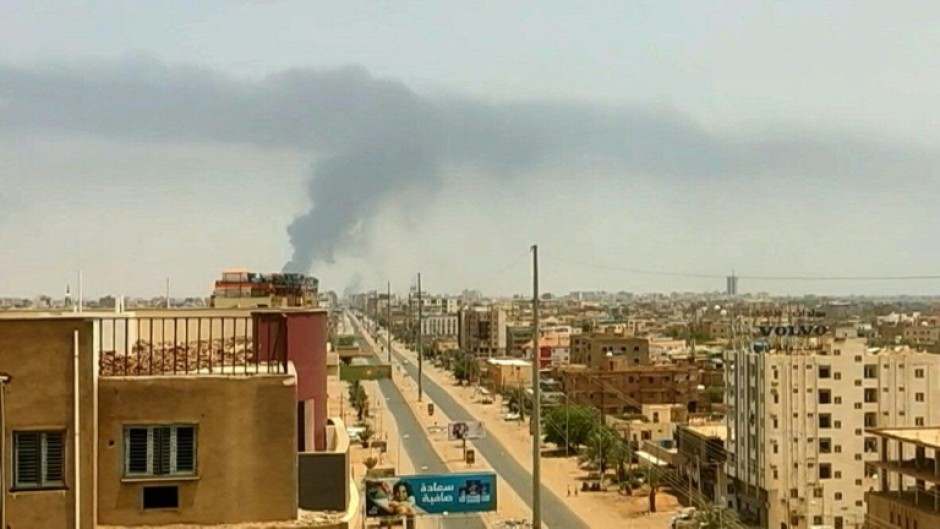
KHARTOUM - Heavy fighting raged on in Sudan on Friday with warring generals trading blame, despite their agreement to extend a truce aimed at stemming nearly two weeks of warfare that has killed hundreds and caused widespread destruction.
Black clouds rose over the capital Khartoum in fresh fighting and the United Nations reported bitter urban battles in the war-ravaged Darfur region where scores were reported dead.
Turkey's defence ministry reported that one of its military transport aircraft had come under fire, underscoring the risks as foreign governments scramble to wrap up evacuations of their citizens.
Violence broke out on April 15 between Sudan's army led by General Abdel Fattah al-Burhan and the paramilitary Rapid Support Forces (RSF) commanded by his former deputy and fellow coup leader Mohamed Hamdan Daglo, with warplanes pounding RSF positions in densely packed districts of Khartoum and fighters exchanging heavy machine gun fire.
The rival generals agreed Thursday to extend a repeatedly broken ceasefire for three more days after mediation led by the United States, Saudi Arabia, the African Union and the UN aimed at securing a more lasting truce.
But witnesses told AFP they heard air strikes and anti-aircraft guns being fired near the army command in Khartoum, where many residents have been shuttered at home with dangerously low levels of food.

Daglo denounced the army chief in an interview with the BBC, saying: "Burhan is not trustworthy and is a traitor. This war destroys Sudan."
In an interview with US-based channel Al-Hurra, Burhan claimed "mercenaries" were pouring over the border from Chad, Central African Republic and Niger to exploit the chaos.
At least 512 people have been killed and 4,193 wounded in the fighting, according to health ministry figures, which are believed to be incomplete.
The Sudanese doctors' union warned Friday that the collapse of the healthcare system was "imminent", with more than 12,000 patients at risk of dying as they could not access regular kidney dialysis.
The UN humanitarian agency said just 16 per cent of health facilities in Khartoum were still operating normally, leaving millions without access to health care.

